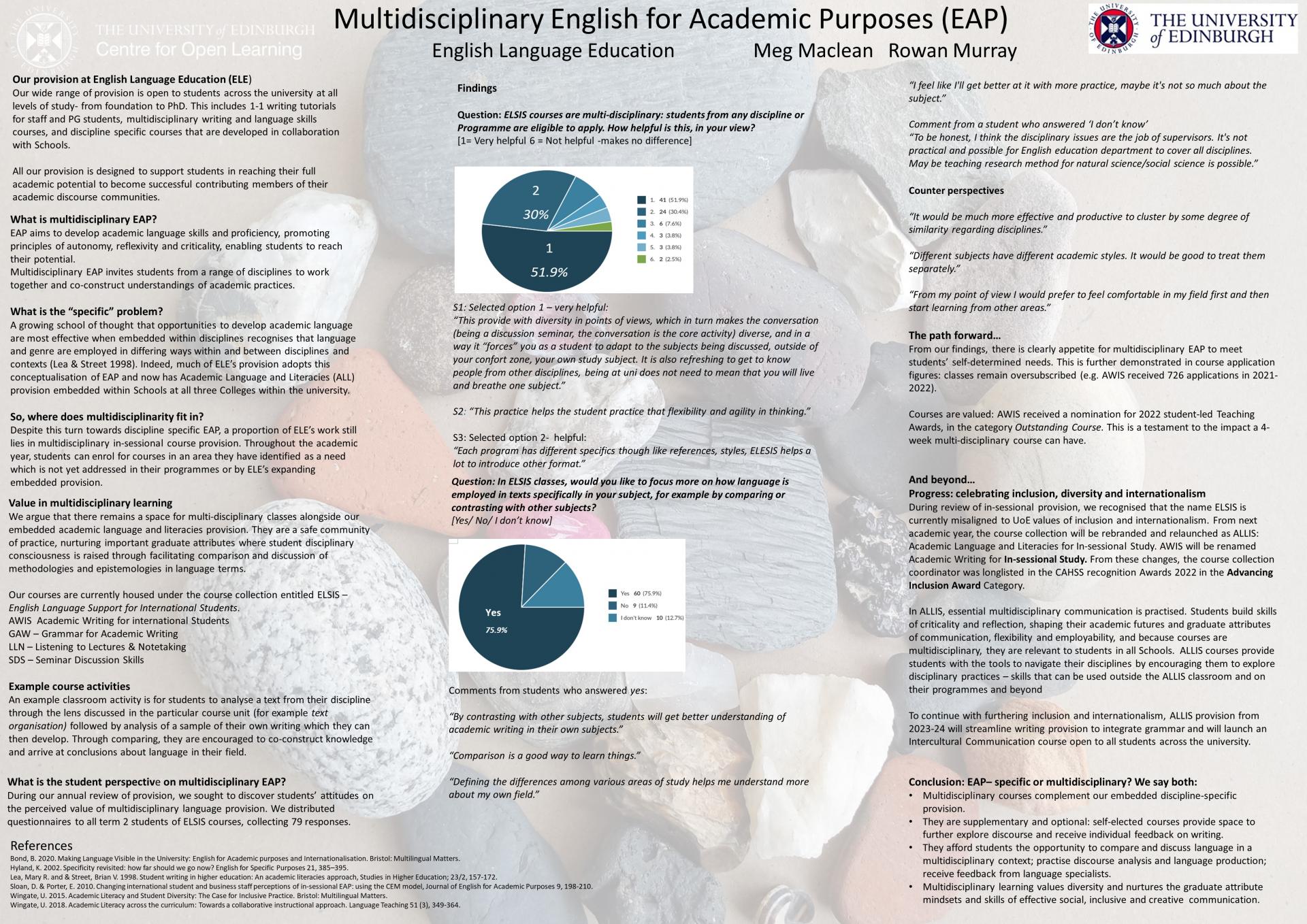Title: Multidisciplinary English for Academic Purposes (EAP) (Online only)
Author: Meg Maclean
Theme: Interdisciplinary teaching; Equality, Diversity & Inclusion

|
Conceptualisations and provision of EAP have continued to evolve and there is now a general consensus emerging that opportunities to develop academic language are most effective when embedded within disciplines, recognising that language and genre are employed in differing ways within disciplines. ELE has embraced this and now has Academic Language and Literacies (ALL) embedded within 16 Schools. Nevertheless, a proportion of ELE’s work still lies in generic in-sessional course provision. These courses are currently housed under the course collection entitled ELSIS – English Language Support for International Students. In addition, the name ELSIS itself is problematic and misaligned to EAP and UoE values. It marginalises international students, suggesting diversity is not valued; instead that international students are in deficit and require support. However, we argue that there remains a space for multi-disciplinary classes (and classes remain oversubscribed) alongside the expansion of our embedded academic language and literacies provision. They are a safe community of practice where student disciplinary consciousness is raised through facilitating comparison and discussion of methodologies and epistemologies in language terms. An example classroom activity is for students to analyse a text from their discipline through the lens discussed in the particular course unit, followed by analysis of a sample of their own writing which they can then develop. They are encouraged to arrive at conclusions about language in their field, and compare this to a partner’s. The course collection will be rebranded and relaunched as ALLIS: Academic Language and Literacies for In-sessional Study from next academic year, to better reflect UoE values of inclusion and diversity. In ALLIS, essential multidisciplinary communication is practised. Students build skills of criticality and reflection, shaping their academic futures and graduate attributes of communication, flexibility and employability, and because courses are multidisciplinary, they are relevant to students in all Schools. This poster shares our practices for multi-disciplinary language teaching, proposing the benefits of multidisciplinary EAP and invites the audience to reflect on how multidisciplinary learning might have value in their own contexts. |
